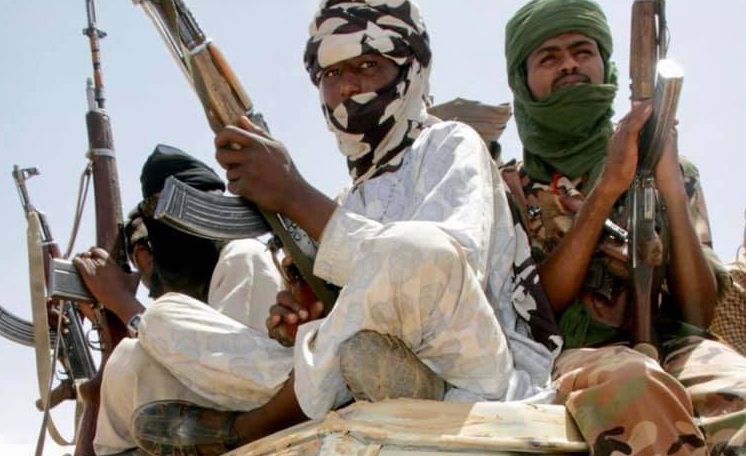Reports
The Militia: From the Rule of Sudan to the Rule of Division

Sudan Events – Agencies
The problem of the political wing—shifted from the Forces of Freedom and Change (FFC) to the “Taqaddum” (Progress)—of the Janjaweed militia, which led them to failure, disappointment, isolation, and confusion, is that they based their plans for seizing power on what their corrupted imaginations desired and what they fancied in their distorted minds. They planned their coup on April 15, 2023, like film producers and screenwriters, where the script and plot of the movie are written according to the writer’s imagination. The events are then executed literally, following a pre-arranged pattern that is completely controlled—no obstacle can spoil the course of the plot, as everything is pure fantasy.
This is how the political wing of the terrorist Al-Daglo militia constructed their plans to seize power with the force of their militia’s weaponry, and neither the FFC nor Taqaddum considered any other circumstances that might obstruct their path as they carried out their nefarious scheme.
The Picture in Their Minds: Their knowledge was limited to the belief that, with the setting of the sun on April 15, power would be in their hands. They imagined celebrating their success together, clinking glasses in jubilant celebration, in the style of their masters from the Arabs and Ajman. The leader of their group, who had misled and influenced them, would take the throne and become the absolute ruler of a nation of 45 million people or more, in a state rich in both visible and hidden resources. He and his allies, who are more like brokers than politicians, would rule without any notable experience or skill, socially, culturally, or politically.
This was the image in their deluded minds up until the moment of execution. But God, the King of Kings, whom they failed to respect, willed otherwise. Their wishes and plans did not materialize, their schemes were exposed, and their efforts were in vain. They were unable to achieve anything of what they had gained.
The Vision of Their Rule: They wanted to rule Sudan and establish a secular emirate under the rule of the Al-Daglo family, where sinners would be honored and the pious humiliated. In such a state, everything would be worshiped except for God, the devil would be obeyed, idol worshipers would be exalted, the Quran would be suppressed, and homosexuals of both sexes would prevail.
A Government in Exile: But God refused to allow their deceit to succeed. He turned their plans back on them, and many of them were killed or fled. Their ambitions dwindled, and after twenty months of attempting to seize power, their dream of ruling Sudan from within was reduced to the idea of establishing a government in exile.
Yes, a government in exile, outside Sudan’s borders, perhaps in a hotel suite in a cold or desert capital, as determined by their regional sponsor.
Even this “delivery” government faced divisions among them. One faction, calling for its immediate formation, clashed with another faction that opposed it, deeming it a leap into the dark.
The first faction calling for a government in exile consists of some leaders from the so-called Revolutionary Front and a few leaders from small political groups, including Taha Osman, Suleiman Sandal, Al-Tayashi, and Taher Hajar. This group insists on the formation of a government in exile and succeeded in placing it as an important issue for discussion within the leadership of Taqaddum. They even threatened to split from Taqaddum if their proposal was not accepted, accusing the majority of Taqaddum members of being “Jallaba” (Arab Sudanese), just like the “Port Sudan group” they criticized. This faction is actively trying to recruit supporters from within the opposing faction, offering incentives and promises of political and material gains once the government in exile is formed.
An Obstacle to the Plan: The second faction, opposing the idea of a government in exile, includes figures whose influence within Taqaddum is significant. They have strong regional and international ties with governments and organizations. Notable figures in this faction include Yasir Arman, Babiker Faisal, Khaled Slik, and Faisal Mohamed Saleh, as well as representatives from the Sudanese Professionals Association, the Umma Party, and the Resistance Committees.
This group has successfully prevented the proposal for a government in exile. Some leaders from this group have criticized Suleiman Sandal’s faction for its racist and coercive behavior, attempting to impose their view by force. Sandal’s faction tried to promote the idea of a government in exile through media and advertising campaigns, with the support of U.S. envoy to Sudan, Perry Elo. However, their efforts failed, as the proposal received little support inside Sudan and was widely rejected. A public opinion poll conducted by the Arab Experts Center for Press Services and Public Opinion Studies, with 43,000 participants, showed that 85% of respondents rejected the idea of forming a government in exile.
The Death of the Idea: With all these developments, all indicators point to the death of the idea—a government in exile or one based in areas controlled by the Rapid Support Forces militia in certain villages, which is now in a dire position, nearing its end. This will mark the idea’s conclusion, and history will record it as one of Sudan’s worst experiences, a model of failure, moral decline, and deterioration. It will serve as evidence that treason and wicked schemes only lead to disaster, and that the criminals’ fate is inevitable destruction.



